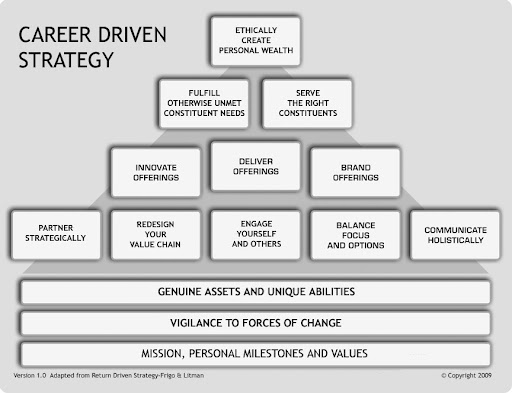It's not a bubble… until your portfolio pops!
| From the desk of Miles Everson: Happy Wednesday! Welcome to I hope you’re all doing well. I’m thrilled to feature another useful investing insight from my friend and colleague, Professor Joel Litman. He and his team are always providing thought pieces that are truly helpful for us in making wise financial and investment decisions. Excited for today’s topic? Keep reading below! |
It's not a bubble… until your portfolio pops! It starts quietly—euphoria, excitement, stories of unstoppable companies, and sky-high valuations… Suddenly, everyone—from your neighbor to the newest finance influencer on social media—is talking about “can’t-miss” stocks. However, seasoned investors know that when markets heat up, so do emotions… and according to Professor Joel Litman , Chairman and CEO of Valens Research and Chief Investment Officer of Altimetry Financial Research , that’s when investors should be paying the closest attention. He also echoed the powerful ideas raised by famed investor Howard Marks in his latest memo, “On Bubble Watch.” As Professor Litman sees it, the conversation isn’t just about calling bubbles before they burst… because often, it’s not about whether we’re in a bubble but about how investors behave when they think we’re not. Right now, the behavior Professor Litman observes is a red flag in itself.
The Market Feels Familiar… and that’s the Warning Sign 25 years ago, Marks penned a memo titled “bubble.com,” sounding the alarm just before the dot-com crash of 2000. In that memo, Marks compared the trajectory of tech stocks to the infamous South Sea bubble and other speculative manias from history. The resemblance was uncanny. It didn’t take long for those predictions to be proven right. Nowadays, Professor Litman sees eerie parallels. Marks once noted that bubbles aren’t about numbers—they’re about mindsets . Professor Litman agrees as bubbles are born from irrational exuberance, fear of missing out (FOMO), and the belief that certain companies are immune to failure. While these signals aren’t quantifiable in a spreadsheet, they’re just as dangerous. … but according to Professor Litman, there’s no need to push the panic button as long as credit markets remain healthy and companies continue posting solid earnings. Instead, what investors should do is to prepare . For instance: Directors and executives leveraging RDS can identify key risks that might erode value and develop countermeasures to address them effectively. Yes, Bruce Lee the martial artist. Lee’s philosophy of being “like water”—fluid, adaptable, and responsive to the situation—applies directly to market cycles. Professor Litman believes investors should take the same approach. In other words, stop boxing yourself in. Are you a growth investor? A value investor? A momentum chaser? According to Professor Litman, that’s the wrong question. A truly smart investor adjusts strategy based on the environment. This means if the market is rewarding innovation and expansion, this investor leans into growth. If the market is correcting or rotating, he or she shifts gears. It’s a lesson that was hard-learned by many in the early 2000s. Back then, Cisco Systems (CSCO) was a poster child for the tech boom. Investors who failed to recognize the shifting winds watched as shares dropped more than 70% during the dot-com collapse. The ones who adapted? They survived—and often thrived. Flexibility Isn’t Optional; It’s Essential Professor Litman warns that rigid investors are most at risk in fast-moving markets like today’s. While value investing may feel out of favor, that doesn’t mean it’s dead. While growth stocks are surging, that doesn’t make them invincible. The key is to know your options—and to know when to use them. — Overall, Professor Litman’s message is simple but essential: Don’t waste time debating if we’re in a bubble. Instead, ask if you’re thinking like someone who could get caught in one. The solution isn’t to sound the alarm; it’s to teach investors how to build the resilience and agility to weather any storm. In other words, be like Bruce Lee. … because in a market that can flip on a dime, being unshakable isn’t about standing still. It’s about knowing when to pivot. … and in investing, just like martial arts, those who can adapt are the ones who endure. Hope you’ve found this week’s insights interesting and helpful. Stay tuned for next Wednesday’s The Independent Investor! Time in the market, and not timing in the market is the best way to build wealth through the stock market. Learn more about why timing in the market is valuable in next week’s article! |

Miles Everson
CEO of MBO Partners and former Global Advisory and Consulting CEO at PwC, Everson has worked with many of the world's largest and most prominent organizations, specializing in executive management. He helps companies balance growth, reduce risk, maximize return, and excel in strategic business priorities.
He is a sought-after public speaker and contributor and has been a case study for success from Harvard Business School.
Everson is a Certified Public Accountant, a member of the American Institute of Certified Public Accountants and Minnesota Society of Certified Public Accountants. He graduated from St. Cloud State University with a B.S. in Accounting.




